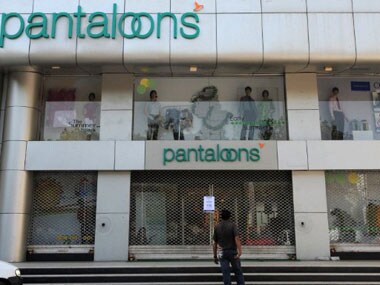Stock markets are closely tracking the debate of FDI in multi-brand retail in Parliament today. While the Lok Sabha will vote on the issue today, the voting in the Rajya Sabha will take place on 6 and 7 December. Though the government is confident of passing the Bill in the Lok Sabha, market participants are only cautiously optimistic.
The new FDI policy in retail allows global companies to take 51 percent stake in Indian companies doing retail business here. This means any global giant investing in the country would have to first tie up with a local partner, new or existing. No wonder stocks of Indian retailers are zooming.
Investment through the FDI route is expected to develop better supply chains, set up cold storages and induct advanced technology.
[caption id=“attachment_544313” align=“alignleft” width=“380”]
 Investment through the FDI route is expected to develop better supply chains, set up cold storages and induct advanced technology. AFP[/caption]
Investment through the FDI route is expected to develop better supply chains, set up cold storages and induct advanced technology. AFP[/caption]
This could transform India’s $450 billion retail market. Sector biggies such as Pantaloon were quick to support the government’s policy decision as strategic foreign partner could provide capital to resolve debt issues and improve store management.
After the Congress conceded to the Opposition’s demand for Parliamentary voting on FDI in retail last week, the benchmark BSE Sensex surged to hit a 19-month high above 19,100 points.
“If the government is able to push through some of the important reform initiatives, the markets will gain further, especially beaten down sectors like infrastructure, capital goods, public sector banks,” said Dipen Shah, Head of Private Client Group Research, Kotak Securities.
Retail stocks have been on the upswing ever since the government announced that it will allow FDI in multi-brand retail. While Pantaloon is up 1.73 percent, Trent is up 0.27 percent.
In the last three months, Pantaloon has risen 68.98 percent, Trent 20.27 percent and Shoppers Stop 26.41 percent. CESC , which owns Kolkata-based Spencer’s, has gained 12 percent in the last month alone.
However, while foreign entities can invest up to 51 percent in multi-product retail, one significant constraint for existing retailers hoping to sew up FDI deals would be the location restrictions. Foreign retail is only allowed to open stores in cities with a population of at least 10 lakh**.**.There will be a logistical issue for the players as they would require contiguous states in order to be operationally effective.
Secondly, the states also have the last word in permitting the entry, which leaves the market open for investment in only a few states.
Third, the Indian retailers would have to undergo a lot of restructuring and create special purpose vehicles for their businesses in the states in which FDI is allowed and this can take a while.
A 30 September report by brokerage CLSA had highlighted the problem retailers may face despite the government allowing FDI in retailers.
States that have approved FDI account for 27-56% of Pantaloon’s retail footprint, said the CLSA report, adding that Pantaloon is open to finding partners for its home formats “but wants more states to come into the fold before attempting to find partners for its flagship value and lifestyle formats”.
So even if Pantaloon Retail may be theoretically the biggest beneficiary of the policy change, complicated structuring will have to be carried out by retailers to hive off stores in locations where FDI is not allowed (e.g. Gujarat, UP, Bengal, etc), into a separate entity.
Moreover, given that foreign retailers are at the mercy of state governments they may go slow on long-term investment in India.
Even if a state favoured foreign investment in retail, what would happen if the current regime was voted out in the next election? Would a company have to shut shop? '
“Given the state-level discretion involved here, the company may have to consider separate alliances or partnership structures,” said JP Morgan in a note recently.
However, players that are just setting up their retail chains or are in the nascent stage of growth like Bharti will benefit from this FDI move.
)